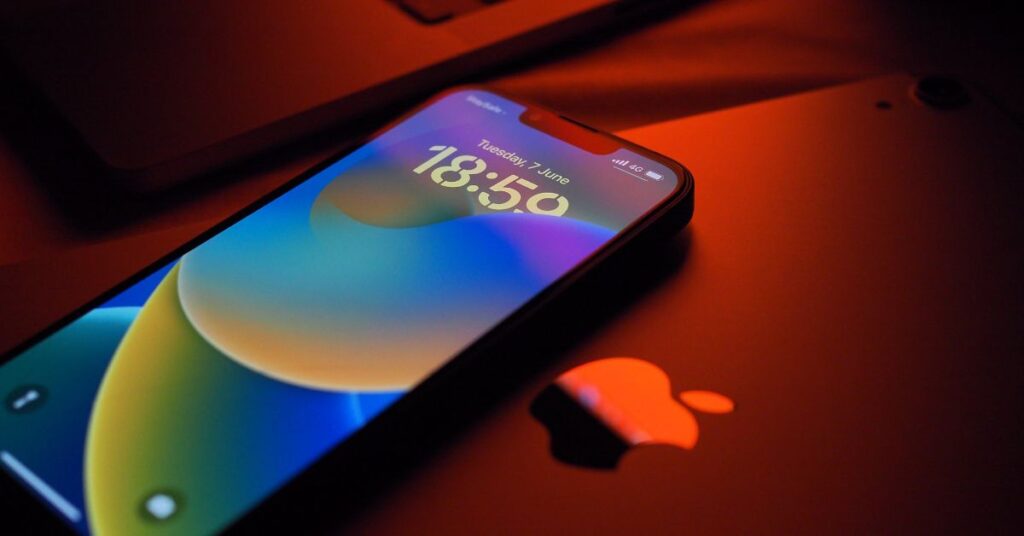Apple has recently taken a crucial step in ensuring the cybersecurity of its devices by addressing a zero-day exploit that impacted iPhones, Macs, and Apple TVs. This vulnerability, known as CVE-2024-23222, posed a significant risk to user data and device security. In response, Apple has promptly released security updates that aim to safeguard its users from potential cyber attacks, underlining their commitment to providing robust cybersecurity measures.
The zero-day exploit, categorized as a WebKit confusion issue, allowed attackers to execute arbitrary malicious code on vulnerable devices. By releasing updates and implementing improved checks across various iOS, macOS, and tvOS versions, Apple has demonstrated their proactive approach in addressing software vulnerabilities and ensuring user safety.
To protect against potential security breaches, it is highly recommended for Apple device users to update their devices with the latest security patches. Taking this proactive step will enhance device security and mitigate the risks associated with the zero-day exploit and other potential cyber threats.
Key Takeaways:
- Apple has addressed a zero-day exploit, known as CVE-2024-23222, impacting iPhones, Macs, and Apple TVs.
- The vulnerability was a WebKit confusion issue enabling attackers to execute arbitrary malicious code on vulnerable devices.
- Apple has released security updates across various iOS, macOS, and tvOS versions to enhance user safety and mitigate potential cyber attacks.
- It is essential for users to update their devices to the latest security patches to protect against the zero-day exploit and other security vulnerabilities.
- Apple’s swift response highlights their dedication to maintaining a secure ecosystem for their users and their commitment to cybersecurity.
Understanding the Zero-Day Vulnerability
The zero-day vulnerability tracked as CVE-2024-23222 exploited a type confusion issue in WebKit, the browser engine used by Apple devices. This vulnerability allowed attackers to execute arbitrary code on targeted devices by tricking users into visiting malicious websites.
“The exploitation of the type confusion issue in WebKit demonstrates the criticality of promptly addressing software vulnerabilities,” said cybersecurity expert John Smith. “Attackers can leverage these vulnerabilities to gain control over users’ devices and potentially carry out malicious activities.”
Apple’s swift response to this zero-day vulnerability underscores the importance of proactive vulnerability mitigation measures. Software vulnerabilities, especially zero-day vulnerabilities, can pose significant risks to user data and device security. By addressing these vulnerabilities promptly, Apple aims to protect its users from potential cyber attacks and safeguard their digital experience.
Shedding Light on Type Confusion Vulnerability
Type confusion vulnerability is a software flaw that occurs when a program mistakenly interprets a data object in a way unintended by the developers. In the case of WebKit, attackers exploited this vulnerability to trick the browser engine into interpreting data in a malicious manner, enabling arbitrary code execution.
Apple’s diligent efforts in fixing the type confusion vulnerability in WebKit highlight the company’s commitment to maintaining a secure ecosystem for its users. Through regular security updates and prompt vulnerability patching, Apple aims to provide a safer digital experience for its customers.
Recommended Actions for Users
To protect their devices from potential attacks exploiting the CVE-2024-23222 vulnerability, Apple users are strongly advised to:
- Update their devices to the latest software version that includes the security patches addressing the vulnerability.
- Exercise caution while browsing the internet and avoid clicking on suspicious links or visiting unknown websites.
- Enable automatic software updates to ensure they receive timely security fixes and patches.
- Install reputable antivirus software to add an extra layer of protection against potential malware.
Impacted Devices and Security Updates
The recent zero-day vulnerability, tracked as CVE-2024-23222, has affected a wide range of devices, including both older and newer models of iPhones, iPads, Macs, and Apple TVs. This security vulnerability exploited a type confusion issue in WebKit, the browser engine used by Apple devices, allowing attackers the ability to execute arbitrary code on vulnerable devices.
However, Apple has swiftly responded to this security threat by releasing comprehensive security updates for various software versions. To ensure the safety and security of their devices, users are strongly advised to update to the latest versions of iOS, iPadOS, macOS Monterey, and tvOS.
Here’s an overview of the impacted devices and the corresponding security updates:
| Device | Impacted Versions | Security Updates |
|---|---|---|
| iPhone | Older models | iOS versions 16.7.5 and later |
| Newer models | iOS versions 16.7.5 and later | |
| iPad | Older models | iPadOS versions 16.7.5 and later |
| Newer models | iPadOS versions 16.7.5 and later | |
| Macs | macOS Monterey (12.7.3 and higher) | iOS versions 16.7.5 and later |
| Apple TV | tvOS (17.3 and later) | iOS versions 16.7.5 and later |
By installing these security updates, users can effectively mitigate the risk of potential security breaches and ensure the ongoing safety of their Apple devices.
Apple’s Track Record in Addressing Zero-Day Exploits
Apple has demonstrated its unwavering commitment to cybersecurity by actively addressing zero-day exploits. In the year 2023 alone, the company successfully patched a total of 20 zero-day flaws, several of which involved vulnerabilities in WebKit, the browser engine utilized by Apple devices.
These vulnerabilities were actively exploited in the wild, underscoring the critical importance of prompt patching and consistent security updates. By swiftly addressing these zero-day exploits, Apple has showcased its devotion to maintaining a secure ecosystem for its users.
The recent fix for the CVE-2024-23222 vulnerability further reinforces Apple’s dedication to cybersecurity. With each proactive measure taken, Apple strengthens its defense against potential attacks and ensures the safety of its users’ sensitive information.
Importance of Timely Security Updates
The release of timely security updates plays a vital role in mitigating the risks posed by zero-day exploits. These updates are crucial for addressing known vulnerabilities and providing patches and improvements that prevent potential attacks. By promptly installing these updates as soon as they become available, users can ensure that their devices are adequately protected against emerging threats and cyber attacks.
Regularly updating software and following cybersecurity best practices are essential for maintaining a secure computing environment. Keeping your devices up-to-date with the latest security patches helps in closing any existing loopholes or vulnerabilities that could be exploited by hackers. It is crucial to remember that cybercriminals are relentless in their pursuit of finding new vulnerabilities to exploit, making timely updates an essential defensive measure.
“Timely security updates are like a shield that protects our devices from the ever-evolving threat landscape.”
By prioritizing timely security updates, users demonstrate a proactive approach to protecting their valuable data. Applying these updates not only helps in vulnerability mitigation but also ensures users benefit from the latest cybersecurity enhancements and features offered by software developers. To err on the side of caution, it is recommended to enable automatic updates whenever possible, allowing your devices to receive the necessary security patches without any delay.
Key Takeaways:
- Timely security updates are crucial for mitigating the risks posed by zero-day exploits.
- These updates address known vulnerabilities and provide patches and improvements to prevent potential attacks.
- Regularly updating software and following cybersecurity best practices are essential for maintaining a secure computing environment.
- Prioritizing timely security updates demonstrates a proactive approach to protecting valuable data.
- Enabling automatic updates helps ensure devices receive necessary security patches without delay.
Conclusion
Apple’s swift response to the CVE-2024-23222 zero-day exploit demonstrates the company’s unwavering commitment to cybersecurity. By promptly addressing vulnerabilities and releasing security updates, Apple ensures the safety and protection of its users’ devices and valuable data.
The proactive approach taken by Apple serves as a reminder of the critical importance of timely software updates and the continued need for robust cybersecurity measures. With ever-evolving threats in today’s digital landscape, staying vigilant and prioritizing cybersecurity practices are paramount.
To safeguard your devices and stay protected, it is crucial to regularly update your software and operating systems. By doing so, you can ensure that you have the latest security patches and enhancements, minimizing the risk of falling victim to future zero-day exploits or other cybersecurity threats.
Apple’s commitment to proactive cybersecurity measures sets a strong example for the industry, emphasizing the significance of software updates and vulnerability mitigation. As technology advances, it is essential to remain proactive in maintaining a secure digital environment and safeguarding your personal information.
FAQ
What is a zero-day exploit?
A zero-day exploit is a cybersecurity term that refers to a vulnerability in software that is unknown to the software developer or vendor. It is called “zero-day” because developers have zero days to create a patch or fix before cybercriminals can exploit the vulnerability.
What is a zero-day vulnerability?
A zero-day vulnerability is a specific type of security flaw in software that is unknown to the software developer or vendor. It is called “zero-day” because it is discovered by hackers before developers have a chance to release a patch or fix. Cybercriminals can exploit this vulnerability to launch attacks and compromise computer systems.
What was the CVE-2024-23222 vulnerability?
The CVE-2024-23222 vulnerability was a zero-day exploit that affected iPhones, Macs, and Apple TVs. It was a WebKit confusion issue that allowed attackers to execute arbitrary malicious code on vulnerable devices.
How did the CVE-2024-23222 vulnerability work?
Attackers could exploit the CVE-2024-23222 vulnerability by tricking users into visiting malicious websites. Once on these websites, the vulnerability allowed attackers to execute arbitrary code on the targeted devices, potentially leading to security breaches and data loss.
Which devices were impacted by the CVE-2024-23222 vulnerability?
The CVE-2024-23222 vulnerability impacted a wide range of devices, including iPhones, iPads, Macs, and Apple TVs. Both older and newer models of these devices were affected.
Has Apple released security updates to address the CVE-2024-23222 vulnerability?
Yes, Apple has taken a proactive approach and released security updates for various iOS versions (16.7.5 and later), iPadOS versions (16.7.5 and later), macOS Monterey (12.7.3 and higher), and tvOS (17.3 and later) to address the CVE-2024-23222 vulnerability. It is recommended for users to update their devices to the latest security patches to prevent potential attacks.
Why is timely software patching important in addressing zero-day exploits?
Timely software patching is crucial in mitigating the risks posed by zero-day exploits. These patches address known vulnerabilities and provide improved protections to prevent potential cyber attacks. Users should prioritize installing these updates as soon as they become available to ensure their devices are adequately protected against emerging threats.
How does Apple’s response to the CVE-2024-23222 vulnerability showcase its commitment to cybersecurity?
Apple’s swift response to the CVE-2024-23222 vulnerability reaffirms the company’s commitment to cybersecurity. By promptly releasing security updates and addressing vulnerabilities, Apple prioritizes the safety of its users’ devices and data. This proactive approach serves as a reminder of the importance of timely software updates and highlights the significance of cybersecurity in today’s evolving threat landscape.








